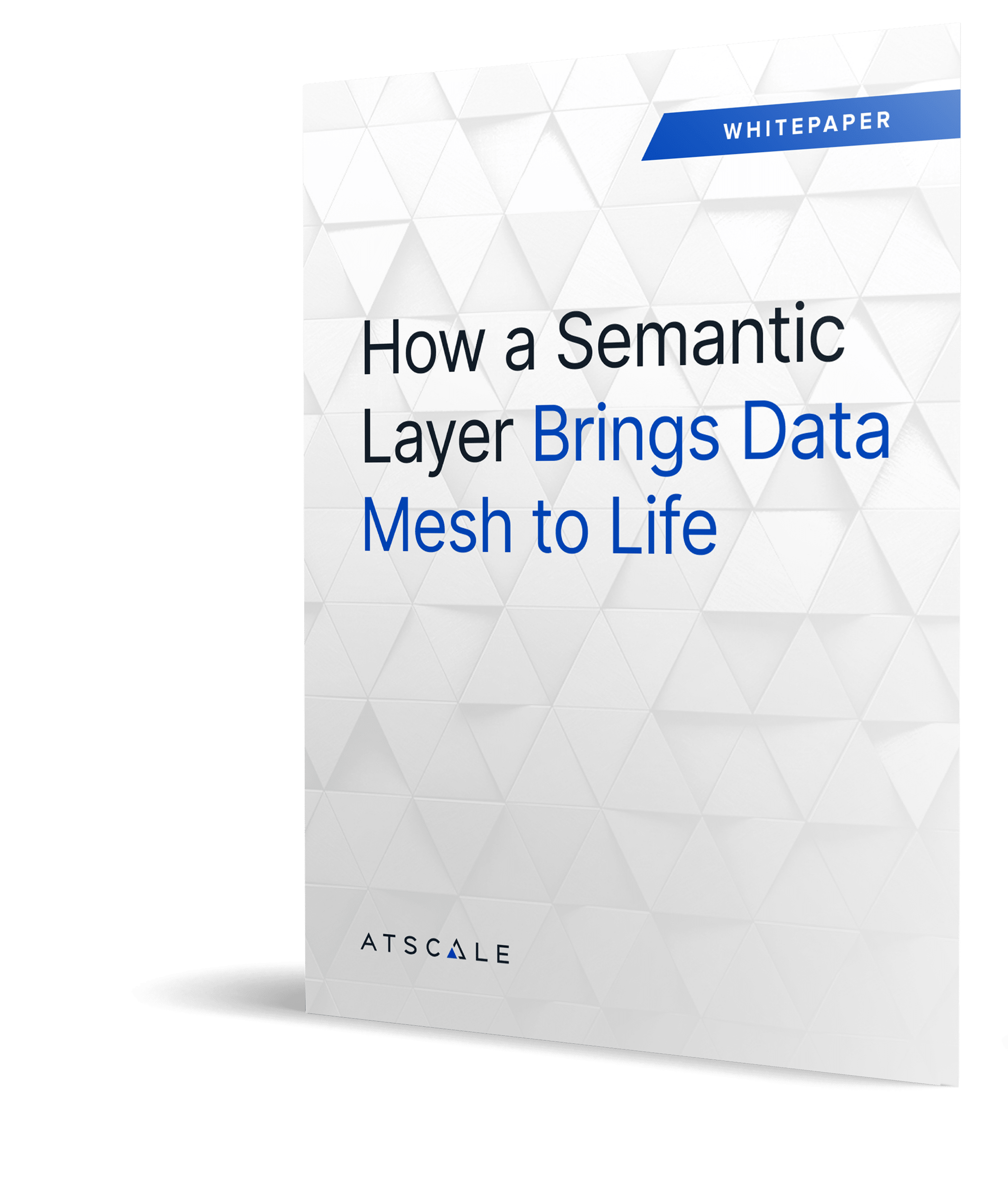A data mesh seeks to democratize data and empower self-service business intelligence. The principles of a data mesh approach make it simple for domain owners — regardless of their level of data expertise — to use, modify, and store data in a way that makes sense for their specific business needs. It does this by enabling these domain experts to build their own data products with pre-established building blocks. Data mesh transforms untapped, disparate data stores into a connective tissue that’s accessible and usable for the entire organization. And it enables this autonomy while also upkeeping universal governance. This ensures that the data gets used in the correct ways.
But, how do you follow the principles of data mesh within your organization? This free whitepaper from AtScale’s VP of Product and data mesh expert, Elif Tutuk, will answer this question. Download this resource to learn:
- The basic principles of a data mesh, and why they matter to organizations today
- How to translate analytics-ready data into business-ready data that domain owners can easily digest and use
- What it means to set up composable analytics and how domain owners use building blocks to create data products
- Which types of governance standards to set when establishing a data mesh framework
- How the semantic layer empowers organizations to create a successful data mesh
About the author:
The career of Elif Tutuk includes more than 15 years of experience in Business Intelligence (BI) and analytics. Her innovations have led to patents for search and conversational analytics, data analysis, data management, and more. Her research and technology development for augmented intelligence (a combination of data science and AI) has led to the rise of third-generation analytics. This is where BI, AI, and machine learning come together to enhance analytics across the data lifecycle – from how data is prepared to how analysis is performed and insights are delivered.
Her success as a product leader has been quite diversified; she’s worked in product management, technical product marketing, design, product development, and research. In her recent role before joining AtScale, as Qlik’s Vice President of Innovation and Design, she oversaw a global team of UX designers, product designers, and engineers in planning and executing an innovation roadmap of cloud data integration and analytics products.
Elif’s work in data and analytics world has empowered people in virtually any job to get value from data, allowing them to ask questions and automatically generate insights in an easy, conversational manner. The technology she led and innovated has allowed thousands of users to understand and use data more effectively and enabled data-driven decisions without bias, enabling businesses to deploy ethical strategies that deliver results without sacrificing integrity. From healthcare and supply chain challenges to climate control and beyond, Elif has worked tirelessly to build solutions that allow people and their organizations to do more with data.
